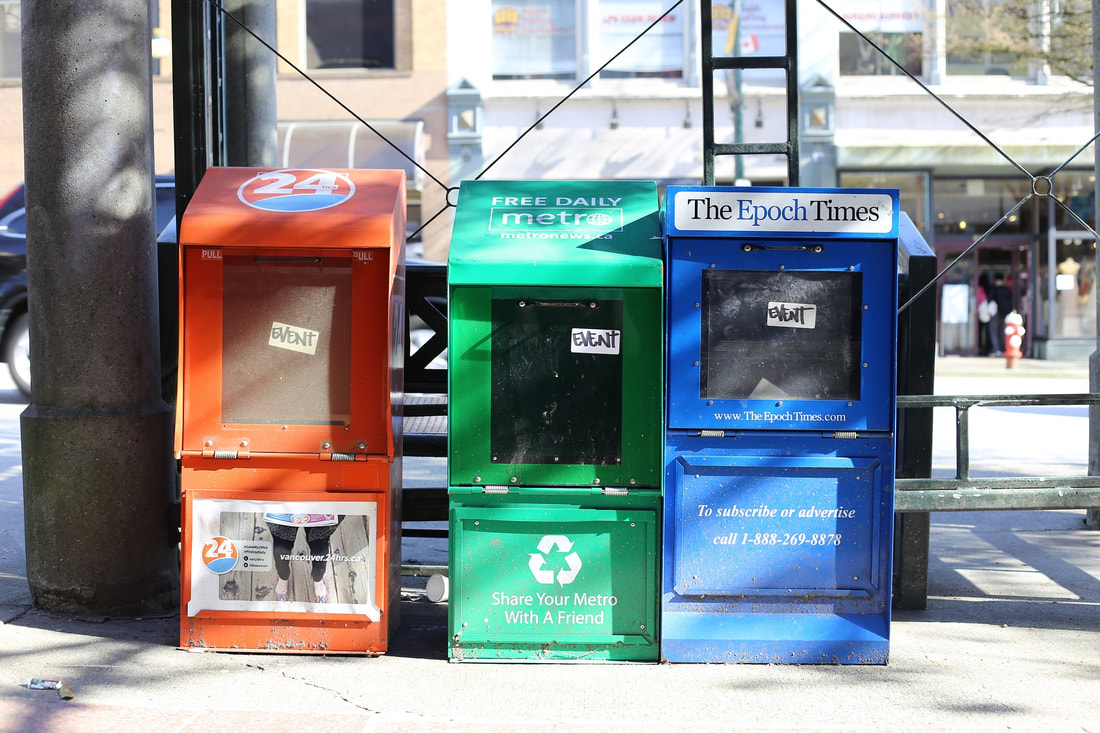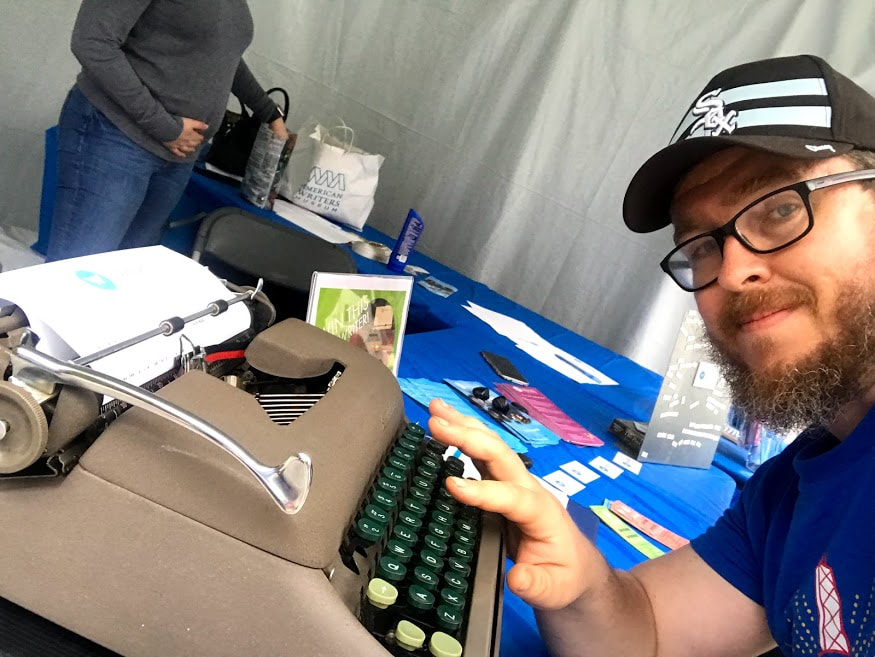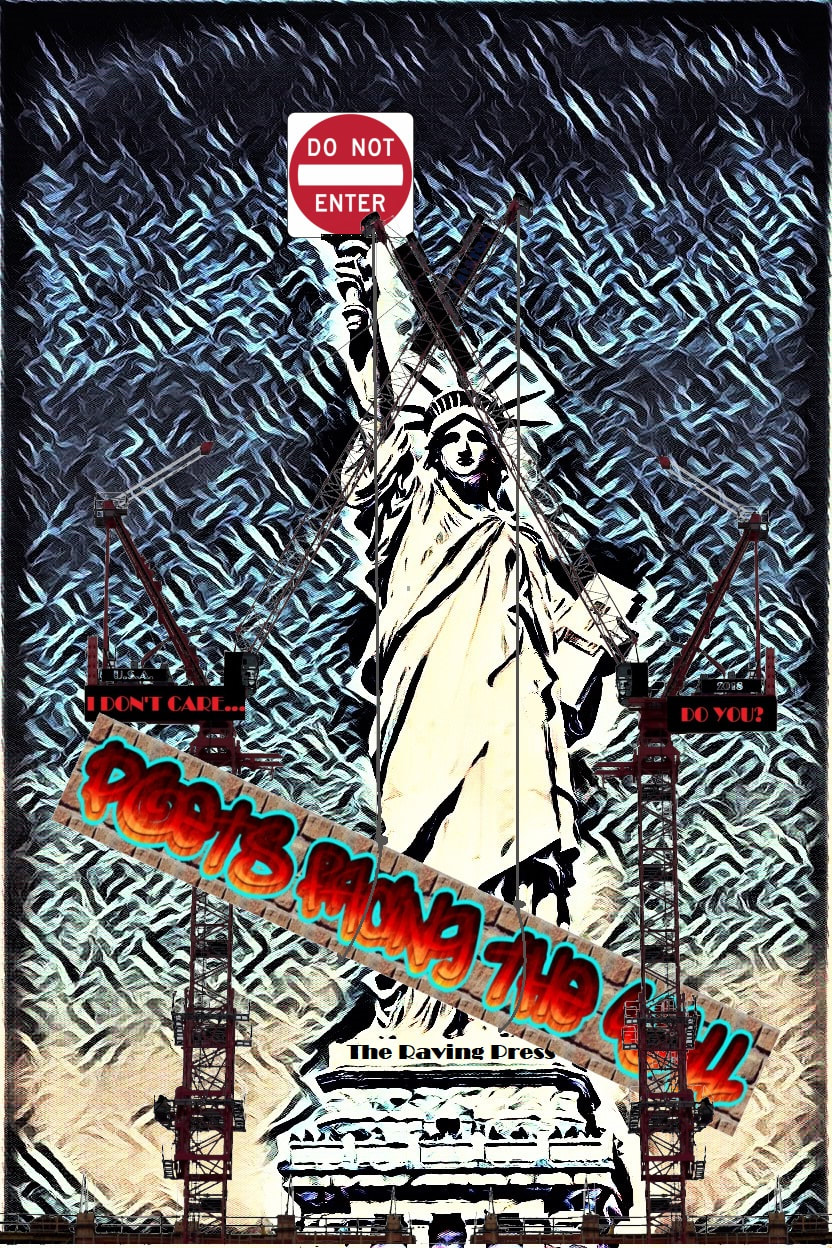|
The News and its Discontents By Joseph S. Pete As a city council reporter in a Midwestern suburb, I ended up covering the youngest city council member in the community's history. He was a clean-cut Oxford shirt-wearing preppy type who often obfuscated, failed to reveal any substantial information, or claimed he wasn’t familiar with a subject and needed to research it more. If you pressed him for more detail, asked any follow-up questions, even softballs, he repeated the same vacuous platitude over and over again, enunciating it every time with a more contemptuous sneer to gloat that you weren’t getting anything else out of him. I was convinced he was going to become governor someday. He was bespectacled and perhaps a trifle husky, but he was also tall and fit the general profile. It felt like he was going somewhere. As a source, he was less than worthless. He would proffer nothing other than self-serving quotes that were heavy on political cliche and light on substance. He appeared to serve only his own political ambition and not the community at large or getting the truth out to people. Often, at heated public hearings, he suggested newspaper reports were inaccurate or outright false. He would try to deflect public criticism by trying to claim the news was fake. Eventually, I moved on to a larger media market and forgot about him. It was with surprise and schadenfreude one day that it was revealed that the city council member was arrested and forced to step down after he was caught surreptitiously filming women changing and using the bathroom at his lakefront home. It turned out the righteous right-wing pol was a major pervert. The revelation reaffirmed my longtime belief that anyone who shied away from, hid from or maligned the media probably did so out of selfish self-interest because they were downright dishonest and hiding something. This city council member definitely had a lot to hide. He ended up being convicted of voyeurism and sentenced to jail time. That’s the crux of it. Politicians have every incentive to lie: to get reelected, to amass power, to conceal wrongdoing or just to save face. All journalists really have is the truth. No one becomes a newspaper reporter for money, wealth, fame, respectability, public adulation or even basic job security. I’ve worked at multiple jobs, including journalist, soldier, janitor, and caretaker for the developmentally disabled. No profession I know has higher ethical standards than journalism. If a reporter gets it wrong, they get egg on their face and there’s a correction in the next day’s paper. A journalist who gets it seriously wrong or commits a cardinal sin like plagiarism or fabrication can get fired and blackballed from the industry for good. Compare that with a politician who can lie routinely and get away with it indefinitely. But that’s the rub. It’s easy and common to dismiss the media as having a liberal bias or being a corporate tool. It’s convenient to cry “fake news” if confronted with anything that even slightly challenges your ironclad worldview. But the legacy media in this country—especially at the local level—generally strives to be neutral, an objective purveyor of the facts whatever our personal beliefs. It’s easy to become cocooned in the nests we build for ourselves in Facebook, Twitter and other social media outlets. It’s quite possible to never engage with anyone with a different worldview or any media outlet that does not cater expressly to our ingrained political biases. But we can’t collectively keep the torch of democracy burning unless we subscribe to a shared notion of truth. Joseph S. Pete is an award-winning journalist, an Iraq War veteran, an Indiana University graduate, a book reviewer for a national magazine, a photographer, and a frequent guest on Lakeshore Public Radio. He is a Pushcart Prize and Best of the Net nominee who has read his work for the Fictitious series on the iO Theater stage, had a play staged at the Detroit Heritage Theatre Festival, showcased his photography at the Oddtropolis Art Show in San Francisco and was named the poet laureate of Chicago BaconFest, a feat that Geoffrey Chaucer chump never accomplished. His literary or photographic work has appeared in more than 100 journals, including The Tipton Poetry Journal, Chicago Literati, Dogzplot, Proximity Magazine, Stoneboat, The High Window, Synesthesia Literary Journal, Steep Street Journal, Beautiful Losers, New Pop Lit, The Grief Diaries, Gravel, The Offbeat, Oddball Magazine, The Perch Magazine, Bull Men's Fiction, Rising Phoenix Review, Thoughtful Dog, shufPoetry, The Roaring Muse, Prairie Winds, Blue Collar Review, The Rat's Ass Review, Euphemism, Jenny Magazine, Vending Machine Press and elsewhere. Like Bartleby, he would prefer not to. The views and opinions expressed in this guest blog post reflect solely those of the author and
not necessarily those of TRiP Wire or The Raving Press. The wall at the Mexico-USA border has always existed. It's nothing new. Even before any physical barriers went up (which they did long before this current push for a "wall"), it was already there.
As people of the border, we are used to this mentality about barriers between nations. That's not what is problematic about the WALL. What is difficult to accept is the narrative about what is happening at the border, which simply does not mesh with our reality. There is a simple reason for that: someone else is telling our story and they are doing it in a bad way. That is why The Raving Press has taken it upon ourselves to publish anthologies that push back on that negative narrative. That is part of the goal of these books. And we do it by involving everyone from the border and beyond to speak about the truths about border people, the truths about walls, and the dangers of toeing the line when the narrative is designed to dehumanize and vilify an otherwise virtuous group of people. Mexicans are such people. I am a Mexican American. I'm proud of being part of this great country, the U.S.A. I am also proud of my Mexican roots, and am very familiar and knowledgeable in regards to Mexico and Mexicans, having been raised in the Rio Grande Valley in South Texas, right on the border. I got the unique privilege of experiencing both worlds simultaneously, the Mexican world and the U.S. world. And, guess what? They are both great. Both have great, wonderful, hard-working people. People from both worlds seek the same things: life, liberty, and the pursuit of happiness. And people from these two worlds deserve to live and grow together in peace, harmony, and openness. To say "Tear Down This Wall" is not exactly to say "OPEN BORDERS" (how spooky!). But it is to say, dial down the rhetoric, realize that we need each other (like it or not), and tear down the mental and emotional wall that exists in the hearts and minds of those who most vehemently promote this attitude of total closure between two neighbors. Ultimately, the future is going to require that we open up all borders. That is a FACT. No one will be able to advance without collaboration, resource sharing, free flow, and equal justice for all humanity. THAT. IS. AN. UNDENIABLE. FACT! We published this book, Poets Facing The Wall, last year (The Raving Press, 2018) in which are featured an array of highly accomplished poets from around the U.S. and the world tackling the issue of the WALL on our border. There are authors included here that have won literary prizes and acclaim in other projects. It is truly our most powerful collection yet. But, being an independent publishing company, the funds weren't there to really promote it. So now we have finally put the book up on Kindle as an eBook as well, and in an effort to promote it further, we are giving it away for FREE for a limited time. Help us get this book out to as many people as possible. People need to read this book. I'm serious. Not because it's poetry. Not because it's form The Raving Press. Not because of politics. But because of the truth. It speaks truth, and that is the one thing we all will need as we make our way into the future. If the truth dies today, there is no hope for tomorrow. |
AuthorGabriel H. Sanchez is an author, poet, actor, editor, and publisher from the Rio Grande Valley in south Texas, on the border with Mexico. Gabriel is the author of "Once Upon a Bad Hombre," "The X Series," "The Martian Ones: Tales of Human Folly," and "The Fluid Chicano." You can read more about him and his other projects at gabrielhugo.com or on his Facebook page: @gabrielhugoauthor. Categories
All
Archives
June 2024
Fueled by RPM |




 RSS Feed
RSS Feed
